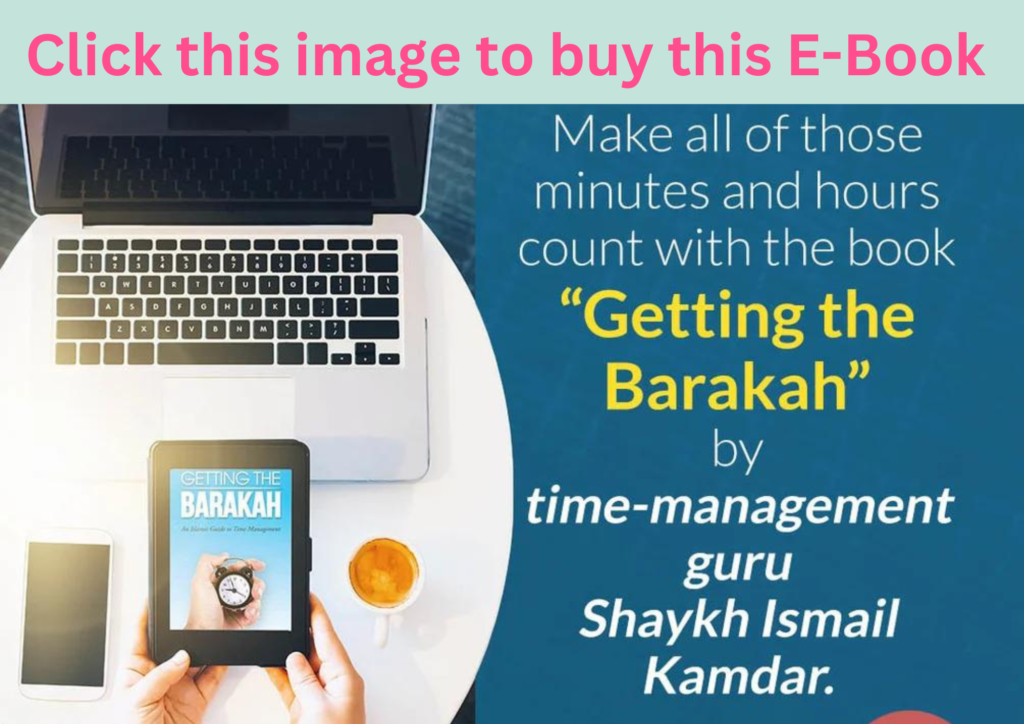In times of distress, fear, misery, and uncertainty, who do we turn to? Who do we call upon? Who do we seek aid and the promise of eventual ease from?
The answer is simple. We turn directly to Allah سُبْحَٰنَهُۥ وَتَعَٰلَىٰ alone.
It is Him that we call upon to answer our du’a, to bring us the hope, relief, and comfort that we so desperately desire. We call upon Allah alone, and directly, without any intermediary.
As stated in Surah Al-Ghafir, verse 14:
فَٱدْعُوا۟ ٱللَّهَ مُخْلِصِينَ لَهُ ٱلدِّينَ وَلَوْ كَرِهَ ٱلْكَـٰفِرُون
So call upon Allah with sincere devotion, even to the dismay of the disbelievers.
Also stated in Surah Al-Baqarah, verse 186:
وَإِذَا سَأَلَكَ عِبَادِى عَنِّى فَإِنِّى قَرِيبٌ ۖ أُجِيبُ دَعْوَةَ ٱلدَّاعِ إِذَا دَعَانِ ۖ فَلْيَسْتَجِيبُوا۟ لِى وَلْيُؤْمِنُوا۟ بِى لَعَلَّهُمْ يَرْشُدُونَ
“When My servants ask you (Oh Prophet) about Me: I am truly near. I respond to one’s prayer when they call upon Me. So let them respond (with obedience) to Me and believe in Me, perhaps they will be guided (on the Right Way).
These verses clearly state that we must call upon Allah directly, and that Allah will respond to us when we confidently call upon Him.
What a source of relief for the believer who is being tested with difficulty! How comforting is it to know that no matter what situation you are in, Allah سُبْحَٰنَهُۥ وَتَعَٰلَىٰ has heard you, and that He has guaranteed a response.
From Allah’s 99 names, He has described himself as As-Sami, The All-Hearing, and Al-Mujib, The Responding One. So, when we call upon Allah using these names, how can we ever doubt a response from Him?
This brings us to the verse of discussion for this article:
ٱدْعُوا۟ رَبَّكُمْ تَضَرُّعًۭا وَخُفْيَةً ۚ إِنَّهُۥ لَا يُحِبُّ ٱلْمُعْتَدِينَ
“Call on your Lord with humility and in secret. Surely He does not like the transgressors.” (Surah Al-A’raf, verse 55)
I want to focus on two words from this verse. تَضَرّ (tadarru’) and خُفْيَة (khufyah).
What is Tadarru’? Tadarru’ refers to humbleness, and humility in the heart, and the humble recognition of the greatness of the Lord and the lowliness of the servant. The verbal supplication is just a means to convey the depths of emotion felt in the heart. It manifests the submission, the dependence, the insignificance, the neediness, felt by the supplicant. This type of supplication breaks the pride and ego and opens the eyes of the supplicant to his real place in the Universe.[1]
As narrated in a hadith of Imam al-Sadiq رَحِمَهُ ٱللَّٰهُ:
“Al-Istikana, means humility and al- tadarru’ means raising both hands and begging for help from (Allah) with both hands.”[2]
[Al-Kāfi – Volume 2, Book 2, Chapter 14]
When we call upon Allah سُبْحَٰنَهُۥ وَتَعَٰلَىٰ, it is only appropriate to properly humble ourselves in front of Him and realize our neediness for Him. We realize our pure dependency on Him and understand that we would not be able to do even the simplest of things, without His help. We should ask Allah for help from the biggest things to the smallest of things.
Anas Ibn Malik رضي الله عنه reported:
The Messenger of Allah, ﷺ, said, “Let one of you ask his Lord for his needs, all of them, even for a shoestring when his breaks.”[3]
[Sunan at-Tirmidhī 3973 – Sahih, according to As-Suyuti.]
No du’a made to Allah is too small or too big for Him to answer. Keeping this in mind, remember that du’a is a thing of the soul which requires that its words match the feebleness and humbleness of the maker of the du’a, that the manner of saying it remains a mirror of modesty, and that this overall humility should ooze forth from the very physical approach to this making of du’a.[4]
Now we come onto the topic of khufyah. Khufyah refers to secrecy, secluded, or in private. The instruction given is that the asking of du’a for what one needs should be done secretly and in a lowered voice which is superior in merit and more likely to be answered.
The reason is that; making du’a in a raised voice is not free of three possible drawbacks:
- It is difficult to maintain modesty and humility in doing so.
- There is the danger of hypocrisy and desire for recognition creeping in through this mode.
- The manner in which this du’a is made only goes to show that the person making it almost does not know that Allahتَعَٰلَىٰ is All-Hearing, All-Knowing. He knows what we show on the outside and also that which we conceal inside. He hears everything said quietly or loudly.[5]
The ability to lay out our raw, pure emotions to Allah without the fear of judgement or ar-riya’ (showing off) to others, can only be done in utmost privacy and secrecy. The middle of the night when you wake up from your deep sleep to pray Tahajjud, when you are alone in your room, and you know that no one else but Allah can hear you, those moments of privacy and seclusion, are when you can truly express what you are feeling to your Rabb.
The act of calling upon Allah in low tones also shows the amount of tawakkul (trust) that you have in Him. You don’t need to yell, scream, or shout. Allah is As-Sami, The All-Hearing. Even those feelings that you hide inside your heart, are well-known to Allah سُبْحَٰنَهُۥ وَتَعَٰلَىٰ. Those hidden desires and feelings that you don’t express to anyone, are loud and clear to Allah.
When the voice of the Companions reached a loud pitch during du’a made on the occasion of the Battle of Khaybar, the Prophet ﷺ said:
“O people, be gentle with yourselves. You are not calling upon One who is deaf or absent; rather, you are calling upon One who hears, sees, and is very near.”[6]
[Ṣaḥīḥ al-Bukhārī, no. 7386; Ṣaḥīḥ Muslim, no. 2704.]
So, the next time you call upon Allah, remember that He alone is The All-Hearing, and The Responding One. He alone can aid you with whatever difficulties that you are facing, and He alone can only grant you the relief that you desire. Lay out your hearts’ desires in front of Him, call upon him with as much tadarru’ that you can muster. Cry to Him, explain to Him how desperate you are and how much in need you are of Him.
May Allah grant you success, in this world and in the hereafter, and accept your du’a and grant you whatever is beneficial for you.
[1] ‘Reflection No. 268 on Q 7:55 – Invoke your Lord Humbly & Secretly’, Academy of Islam, [website], https://academyofislam.com/reflection-no-625-on-q-755-invoke-your-lord-humbly-secretly/, (accessed 12 March 2024).
[2] ‘Al-Kāfi – Volume 2 Book 2, Chapter 14 Al-Raghbah (Fondness), al-Rahbah (Anxiety), al-Tadarru’ (Imploration), al-Tabattul (Sincerity), al- ‘Ibtihal (Appealing), al-Isti’adha (Begging for refuge), al-Mas’alah (Requesting)’, Thaqalayn, [website], https://thaqalayn.net/chapter/2/2/14, (accessed 12 March 2024).
[3] Abu Amina Elias, ‘Hadith on Dua: Let one of you ask Allah for all of his needs’, Daily Hadith Online: The Teachings of Prophet Muhammad ﷺ, [website], https://www.abuaminaelias.com/dailyhadithonline/2012/03/28/ask-allah-alone-for-needs/, (accessed 12 March 2024).
[4] Ma’arif al-Qur’an.
[5] Ma’arif al-Qur’an.
[6] Jinan Yousef, Dr. Tahir Wyatt, ‘The Meaning of Allah’s Name Al-Sami: The One Who Always Listens’, Yaqeen Institute, [website], https://yaqeeninstitute.ca/read/paper/the-meaning-of-allahs-name-al-sami-the-one-who-always-listens#ftnt1, (accessed 12 March 2024).





